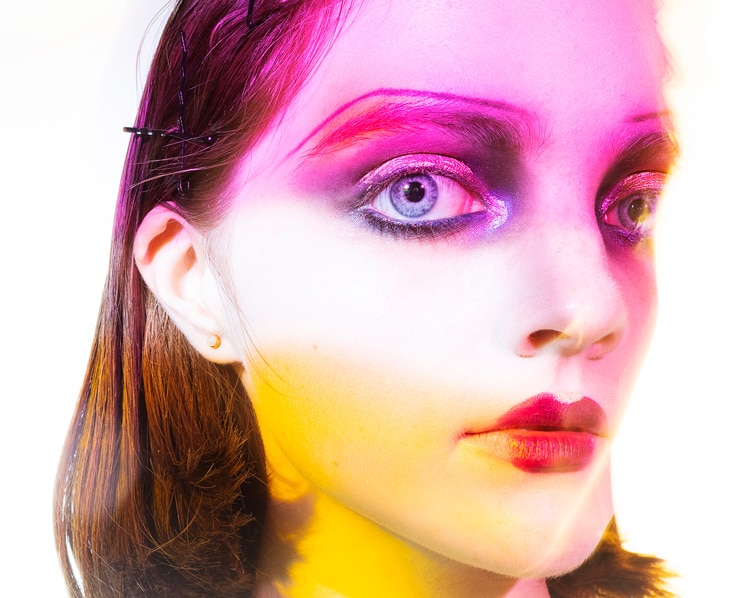Caroline Flack’s new show ‘The Surjury’ wants to end plastic surgery stigma
A new show is coming to our screens, and this time, it’s about people competing to get funding for plastic surgery. Yes, you read that right. Channel 4 is currently working on The Surjury, a new TV series which will be hosted by Love Island’s Caroline Flack, where a 12-strong jury will decide if people get to undergo the cosmetic surgery they’ve always dreamed of—for free.
Naturally, the announcement of the upcoming show has caused quite a stir. Controversial ‘trash’ TV, be that ITV’s Love Island or Channel 4’s Naked Attraction, have a special place in people’s hearts (mine included), so it makes sense that The Surjury caused such excitement. Yet, people are on the fence about this one, understandably. Of course, people should have autonomy over their own bodies, and have the freedom to do whatever they wish with it, but watching these shows requires a level of great caution, as contestants are usually very vulnerable people.
Love Island has been criticised for failing to provide proper after-care and resources for their contestants’ mental health, with two previous islanders committing suicide. The Jeremy Kyle Show has been cancelled after a man who appeared on the show took his own life, and contestants on Naked Attraction are constantly criticised by viewers. For The Surjury, both the producers and the viewers will have to be very careful not to exploit the contestants’ vulnerabilities and insecurities. And, so far, neither have been doing a particularly good job at that. A Channel 4 spokesperson told Screen Shot that the contestants “will be psychologically assessed and supported regarding their involvement in the programme,” which sounds like just another vague quote from a press release, forcing me to anticipate that the show will cause just as much damage as previous ones.
The Surjury will be dealing with an already sensitive and controversial topic: plastic surgery, and this is not the first time British television is under fire for promoting various cosmetic surgical procedures. Over a year ago, during the run of Love Island 2018, ITV was urged to cancel running diet and plastic surgery ads. During that time, the show managed to increase its share of 16 to 34-year-old viewers by a fifth, with the numbers only growing this year. A study conducted by feminist group Level Up found that 40 per cent of women aged between 13 and 34 felt more self-conscious about their own bodies while watching the show. 1 out of 10 girls said they wanted to get lip fillers, while 8 per cent considered a breast enlargement surgery. Eventually, these ads were banned.
Even now, Instagram is removing all of its plastic surgery-effect face filters. While these filters were incredibly popular among users, a number of concerns have been raised over the impact that these have on our physical and mental wellbeing—there’s even a new phenomenon called ‘Snapchat Dysmorphia’, where people request plastic surgery to look like they do when wearing face filters. If there is so much evidence indicating how harmful the glamorization of plastic surgery is, is it really fair to air a show about it?
“The Surjury seeks to explore why so many people feel the need to change their bodies, and whether surgery actually makes them happier,” says a Channel 4 spokesperson. “All contributors featured in the series have actively been seeking surgery on their own accord. This new series allows them to consult with surgical teams and then to discuss their reasons for wanting it with a panel of their peers. The show will neither glamorise nor condemn their choices: the aim is instead to interrogate the realities of cosmetic surgery.” Even if the show exploits the way Instagram made us ‘addicted’ to digital filters and plastic surgery, and though people working on the show make it clear it is not their intention to ‘glamorize’ or make fun of cosmetic surgery, there is absolutely no guarantee that the series won’t be harmful.
“The Surjury plays on the vulnerability of its contestants, those who are unhappy with their appearance to such an extent that they are willing to undergo potentially dangerous and life-altering surgery to rectify their perceived problems,” writes Emily Baker for i news, condemning the show and its morals. A cosmetic surgeon that was first cast for The Surjury later refused to take part in it once he received more details about it, as he thought it would be unethical. But this raises the following question—isn’t it wrong to immediately assume that people seek plastic surgery purely out of low self-esteem and insecurity?
🤦🏾♂️I was cast as the doctor for this and declined after the press release told the full show premise - I can’t believe any ethical doctor would be involved
— DR ESHO MD (@DrTijionEsho) October 18, 2019
In a way, by condemning the show, aren’t we only creating more stigma around plastic surgery, while we should be doing the opposite? We should be allowing people autonomy over their own bodies, especially when women don’t have much of that in the first place. If plastic surgery makes someone happy, then why can’t we just let them be? After all, contestants have agreed to take part in this ‘competition’, and only their choice should matter.
But, in this case, it is also the jury’s decision to make. They decide if you get the funding or not, thus having the autonomy over your surgery. And somebody sacrificing their own self-esteem, sanity, and health, as well as the stress of being judged by the entire nation purely for the sake of our own entertainment (and in their case, a few thousands of pounds for their surgery) is messed up. If done right, the show has a good chance to fight stigma around cosmetic surgery. If not, it has just as big a chance to ridicule people and crush their self-esteem.





